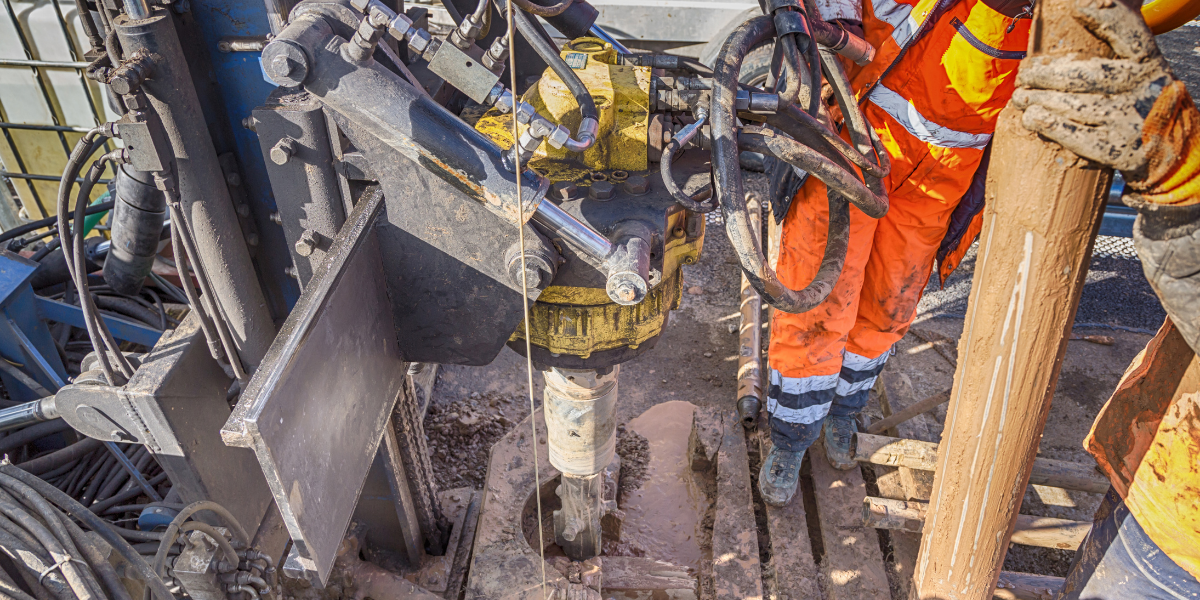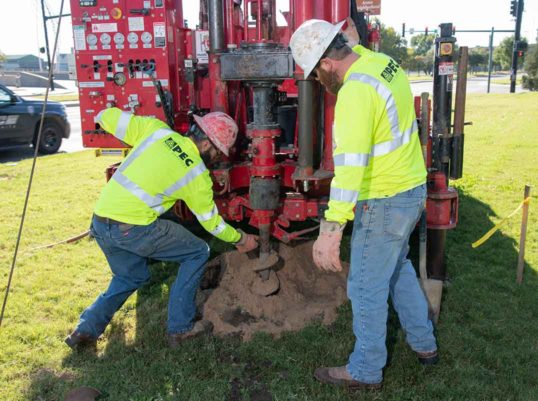Vital Top Qualities of Effective Civil Consulting Engineers
Vital Top Qualities of Effective Civil Consulting Engineers
Blog Article
An In-depth Overview of the Secret Duties of Geotechnical Engineers in Site Characterization and Ground Enhancement Techniques for Design Solutions
Geotechnical engineers are indispensable to the successful execution of design jobs, charged with the essential duties of website characterization and the application of ground enhancement strategies. Their job includes a comprehensive analysis of subsurface conditions, employing different testing methods to determine soil and rock buildings.
Role of Geotechnical Engineers
Geotechnical engineers play a critical role in the design and construction of infrastructure by evaluating the habits of soil and rock under the surface - geotechnical eng. Their responsibilities include examining subsurface conditions to inform layout choices that make certain architectural stability and security. By carrying out comprehensive analyses of soil residential properties, including shear toughness, permeability, and compressibility, geotechnical engineers offer vital data that influences the choice of appropriate building and construction materials and strategies
In addition to analyzing dirt technicians, geotechnical engineers are charged with recognizing possible risks such as landslides, sinkholes, and ground negotiations. Their experience assists mitigate dangers related to these geotechnical phenomena, therefore securing both the environment and public safety. They likewise team up carefully with various other design self-controls, ensuring that geotechnical considerations are integrated into overall job style.
Moreover, geotechnical engineers participate in the assessment of existing frameworks, giving suggestions for retrofitting and fixings when necessary. Their detailed understanding of soil-structure communication is important for the advancement of lasting infrastructure services. Generally, the duty of geotechnical designers is integral to the effective understanding of construction jobs, guaranteeing they are risk-free, long lasting, and certified with regulatory standards.

Website Characterization Procedures
Effective website characterization processes are essential for comprehending the subsurface problems that influence task style and execution. Geotechnical designers employ an organized method to gather, evaluate, and translate information concerning dirt, groundwater, and rock qualities. This procedure starts with a detailed evaluation of existing literary works and historical website information, giving insights right into previous website conditions and potential obstacles.

Data evaluation adheres to fieldwork, where designers make use of geostatistical techniques to interpret searchings for and develop geological versions. This modeling help in determining potential geohazards, such as landslides or liquefaction, which are essential for danger assessment. Subsequently, the outcomes notify layout recommendations, ensuring that design options are both efficient and secure. Through attentive site characterization, geotechnical engineers lay the foundation for successful task execution, decreasing unpredicted complications and maximizing source appropriation.
Dirt and Rock Screening Techniques
While recognizing subsurface conditions is vital, the selection of ideal dirt and rock testing techniques is just as vital for exact evaluation and design. Geotechnical engineers utilize a variety of testing techniques to assess the physical and mechanical residential properties of dirt and rock products.
Research laboratory examinations, such as Atterberg limitations, grain dimension evaluation, and unconfined compressive stamina examinations, give vital information on soil habits under various dampness problems and packing situations. These examinations aid identify soil classification and anticipate settlement or shear stamina attributes essential for foundation design.
In-situ testing approaches, including Criterion Penetration Tests (SPT), Cone Infiltration Examinations (CPT), and stress meter examinations, enable engineers to gather data directly from the ground. These methods use important insights into the dirt's thickness, consistency, and stratification without the requirement for considerable tasting.
Rock testing generally includes core sampling and laboratory evaluation to assess residential or commercial properties like uniaxial compressive strength and rock quality designation (RQD) With each other, these soil and rock testing methods make it possible for geotechnical designers to make enlightened choices relating to site-specific difficulties, ensuring the safety and security and security of design solutions.
Ground Renovation Methods
Ground enhancement techniques are important for boosting the engineering buildings of dirt, thereby raising its load-bearing capacity and reducing negotiation. These techniques are crucial in resolving challenges offered by weak or troublesome soils, which can significantly impact the stability and durability of structures.
Various ground renovation strategies are employed, consisting of compaction, grouting, and dirt stablizing. Grouting, on the various other hand, involves infusing a liquid product right into the ground to load voids and enhance dirt communication.
Soil stablizing incorporates a variety of techniques, from chemical additives to mechanical treatments, intended at enhancing the soil's resistance to erosion and contortion. Strategies such as lime read here stablizing or concrete blending alter the residential properties of the dirt at a bit level, improving its general performance.
Significance of Geotechnical Analyses
Geotechnical assessments play a critical function in the planning and style of engineering tasks, as they offer crucial information concerning the subsurface conditions. Understanding soil residential or commercial properties, rock developments, groundwater degrees, and prospective geohazards is vital for ensuring the security and security of structures. These assessments allow designers to make enlightened decisions concerning website choice, design criteria, and building and construction approaches.
The relevance of geotechnical assessments extends beyond initial job stages; they are crucial in risk management and expense performance. By recognizing possible problems early, such as soil negotiation, slope instability, or extreme groundwater, engineers can develop proper mitigation methods, lowering the chance of pricey delays and architectural failings. Furthermore, these assessments support conformity with regulative needs and enhance the sustainability of design methods.

Verdict
To conclude, geotechnical engineers are vital to ensuring the security and stability of design projects with detailed site characterization and ground improvement techniques. civil consulting engineers. Their methodical approach to evaluating subsurface her comment is here problems, incorporated with their recommendations for effective ground alteration, considerably improves dirt residential properties and load-bearing capacity. The knowledge of geotechnical engineers not just assists in enlightened project planning however additionally ensures conformity with policies and promotes efficient interaction amongst stakeholders, inevitably contributing to successful design outcomes
Geotechnical designers play a pivotal duty in the layout and building of facilities by examining the behavior of dirt and rock underneath the surface. By performing in-depth evaluations of dirt residential or commercial properties, consisting of shear leaks in the structure, strength, and compressibility, geotechnical engineers offer essential information that affects the option of appropriate building materials and methods.
In enhancement to assessing soil auto mechanics, geotechnical designers are tasked with recognizing potential dangers such as landslides, sinkholes, and ground negotiations. Geotechnical designers use an organized method to collect, evaluate, and translate information concerning dirt, rock, and groundwater features. By recognizing possible problems early, such as dirt these details negotiation, incline instability, or extreme groundwater, designers can create suitable mitigation techniques, decreasing the possibility of architectural failings and costly hold-ups.
Report this page